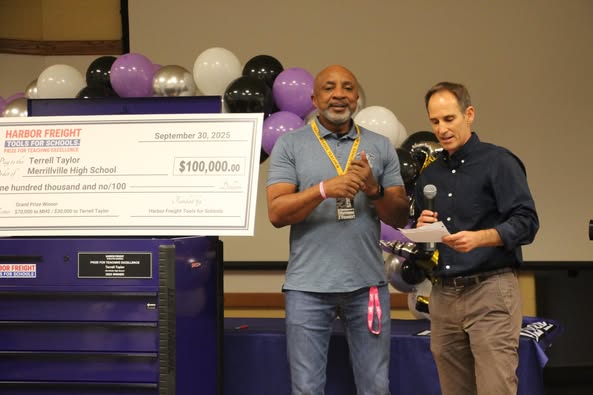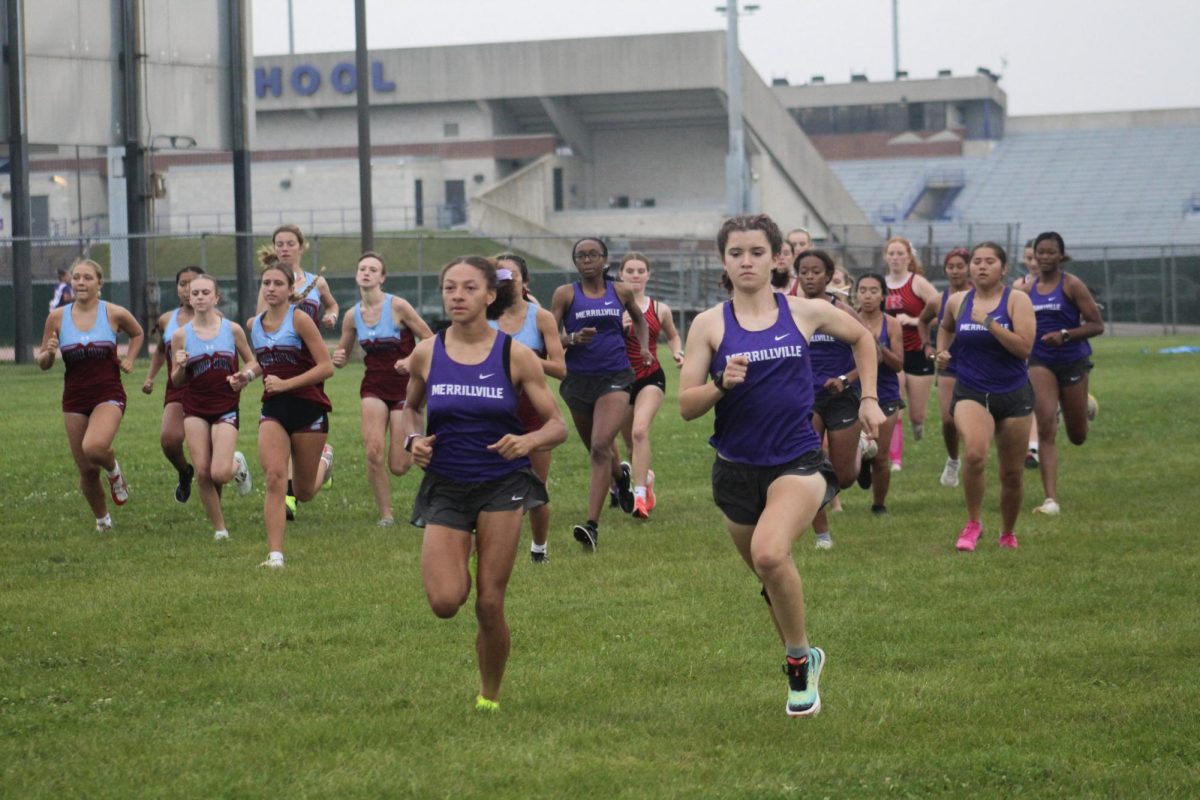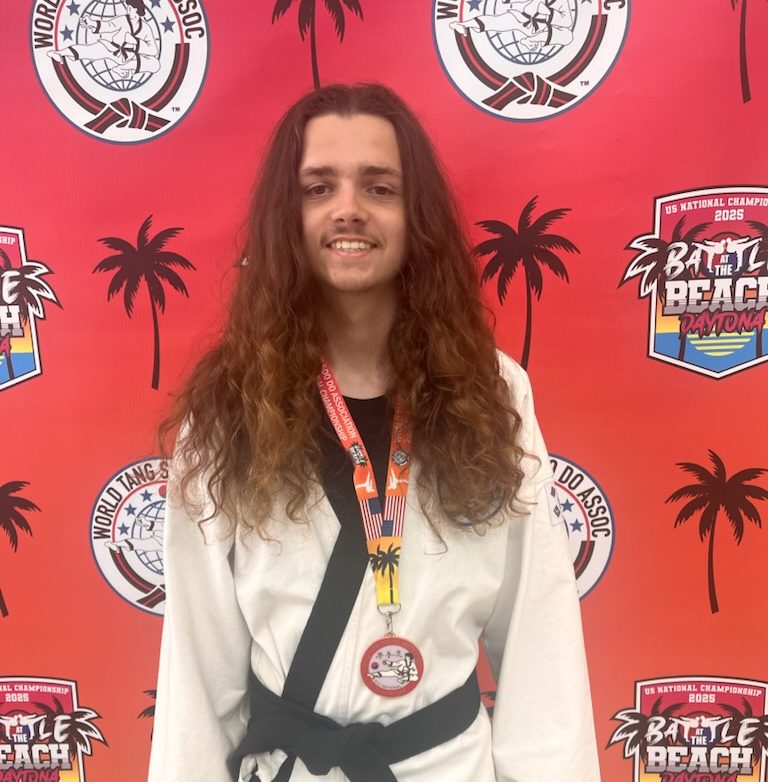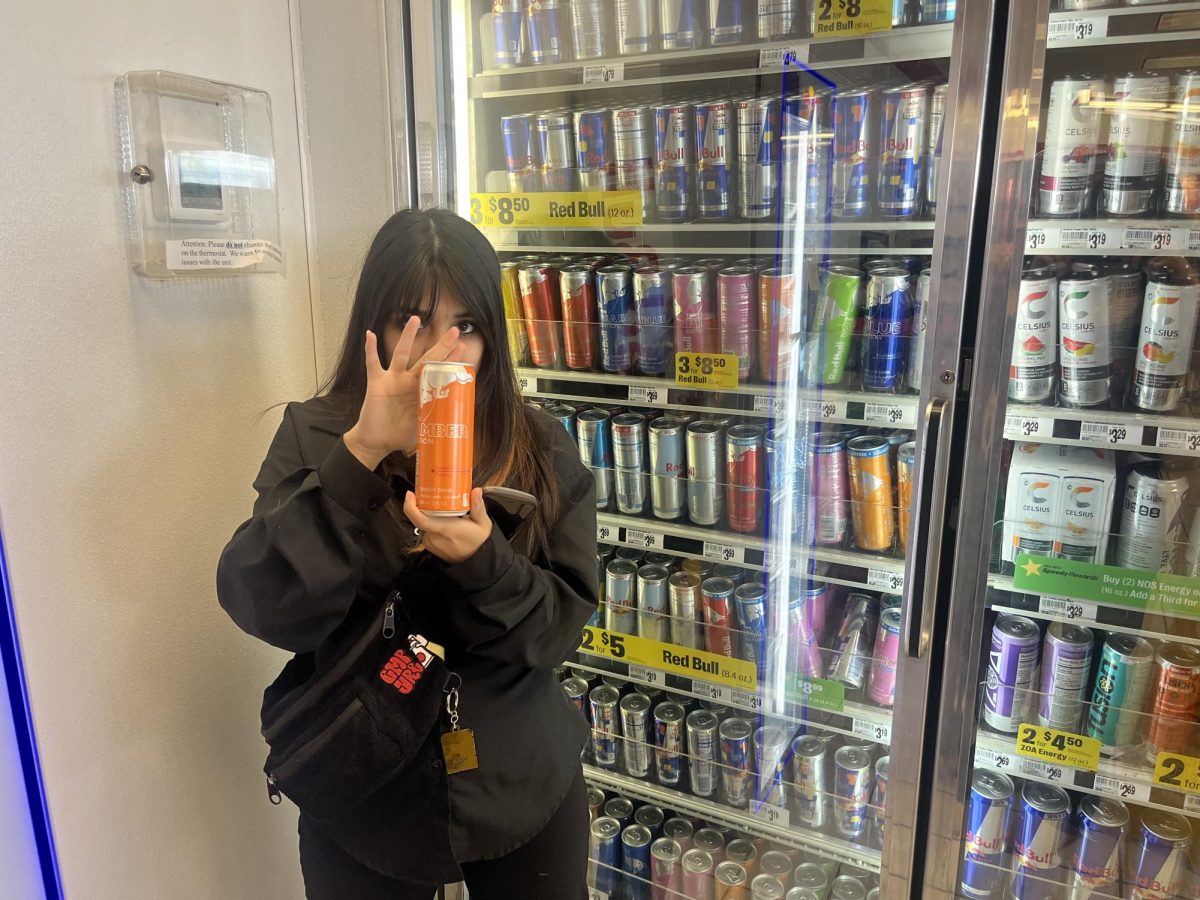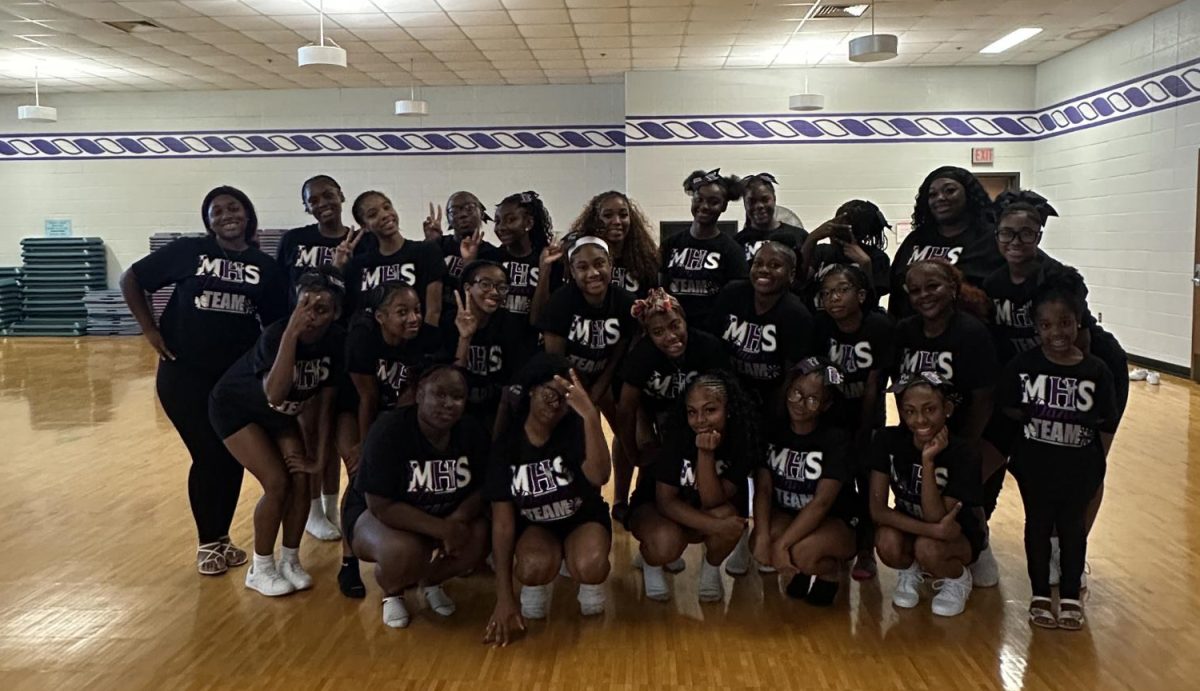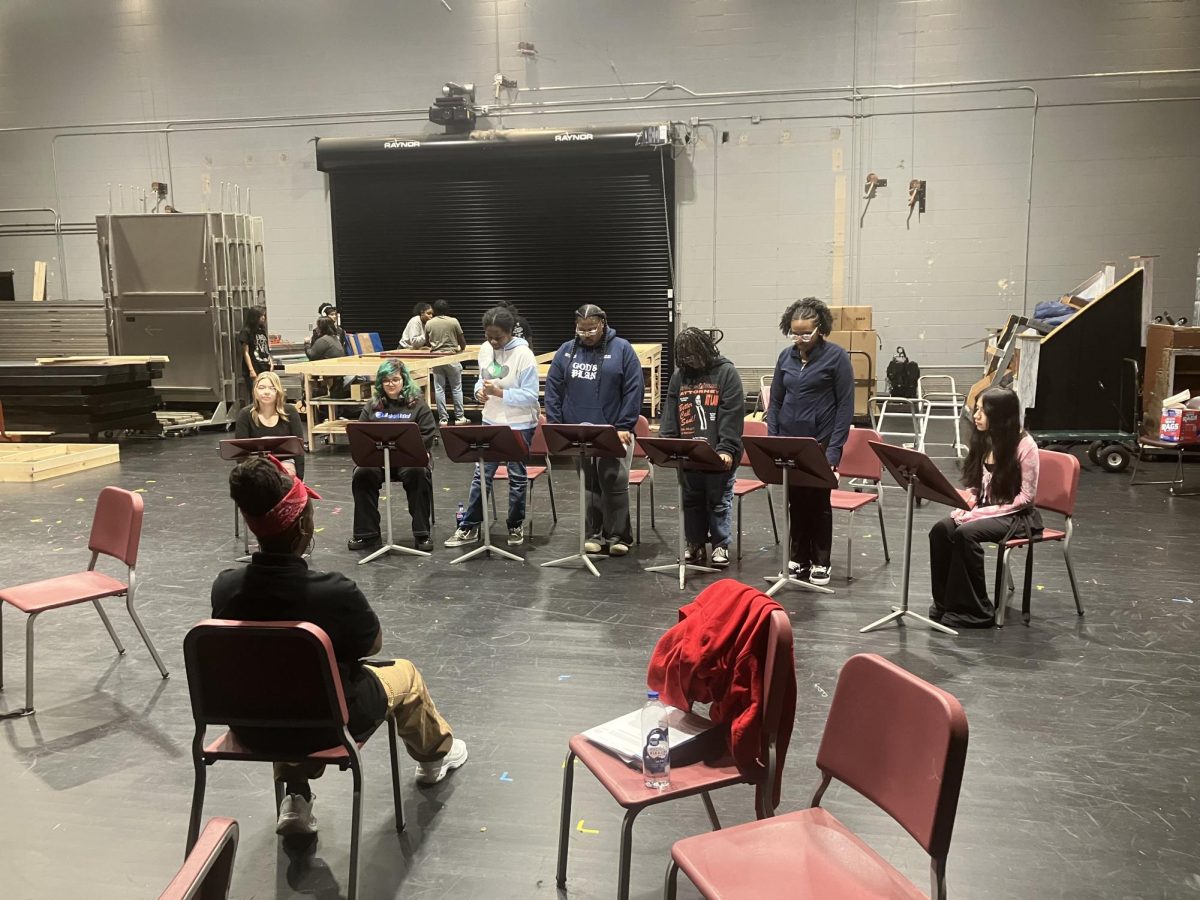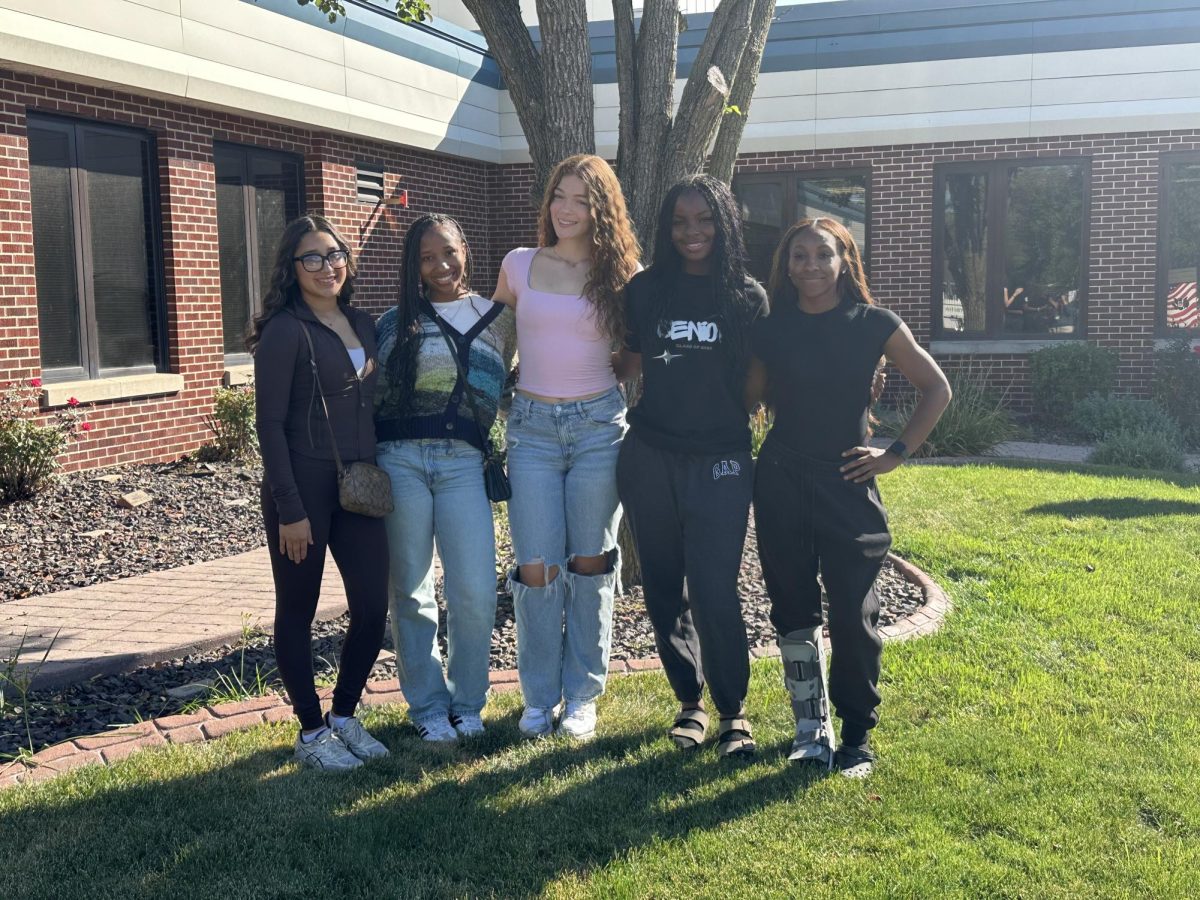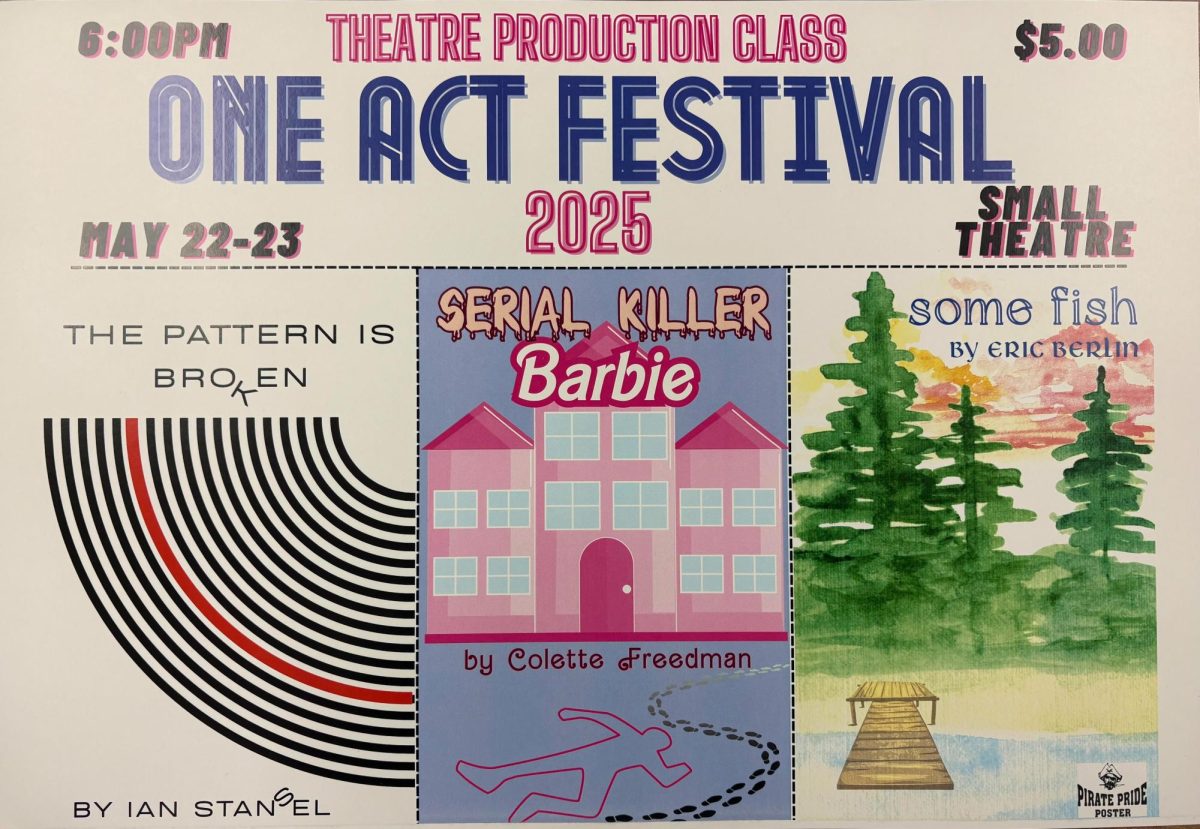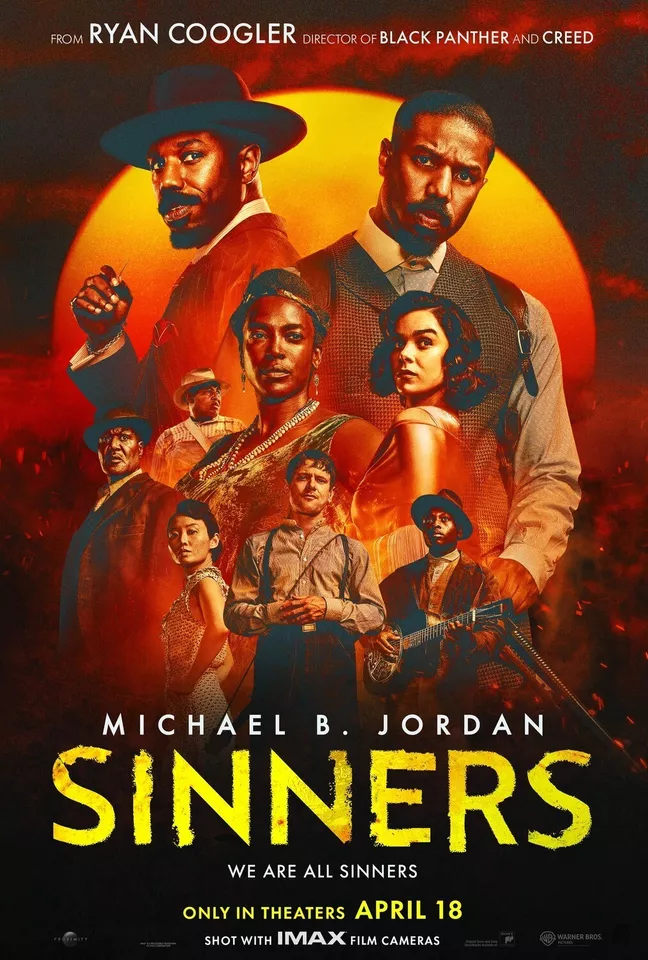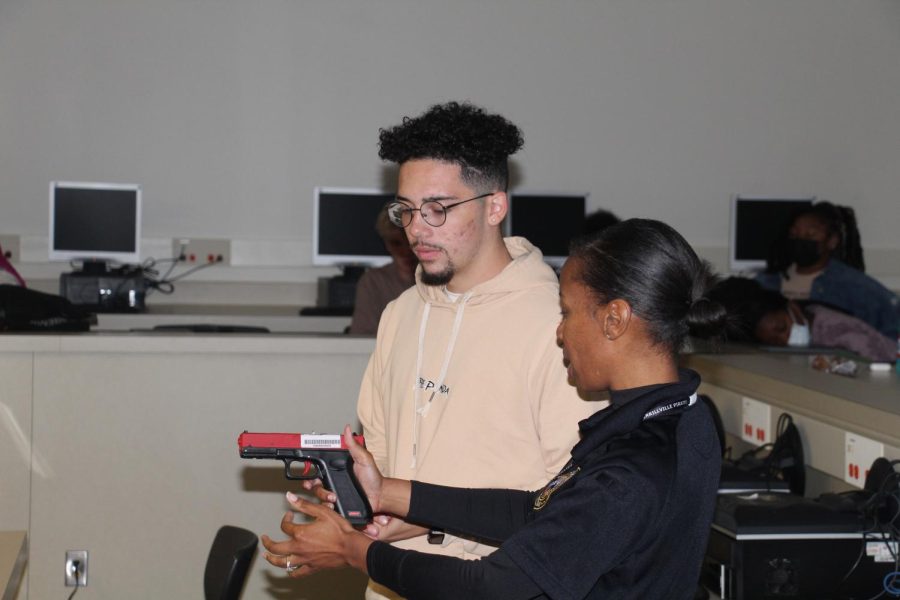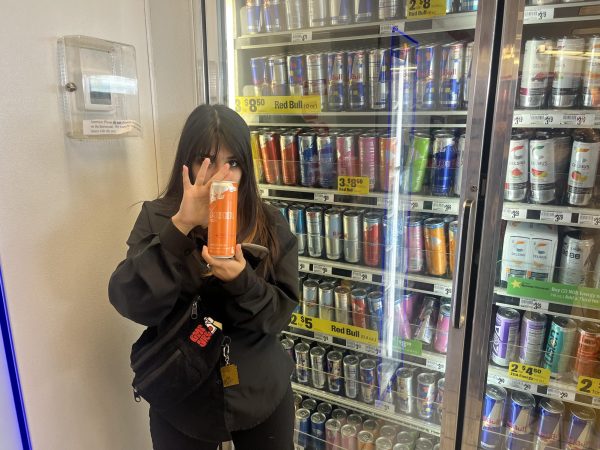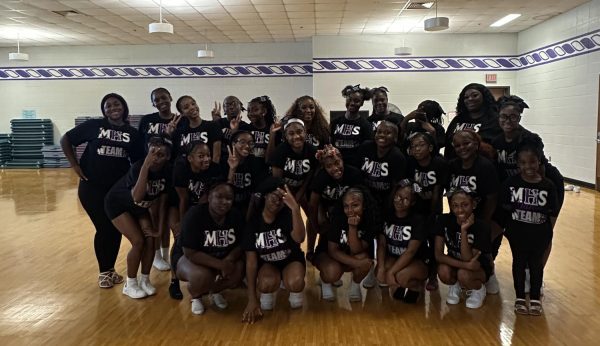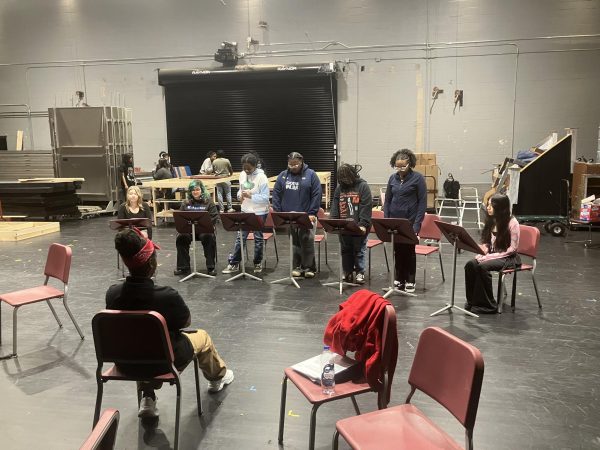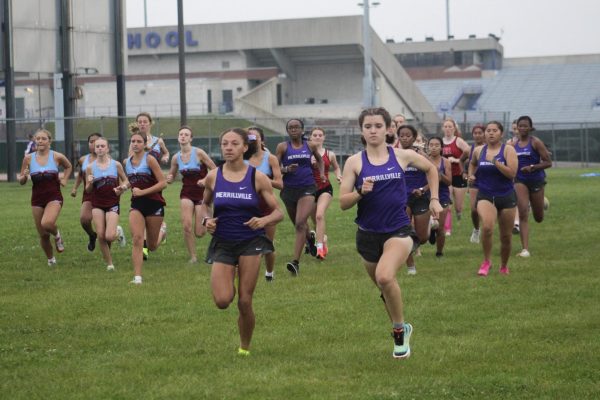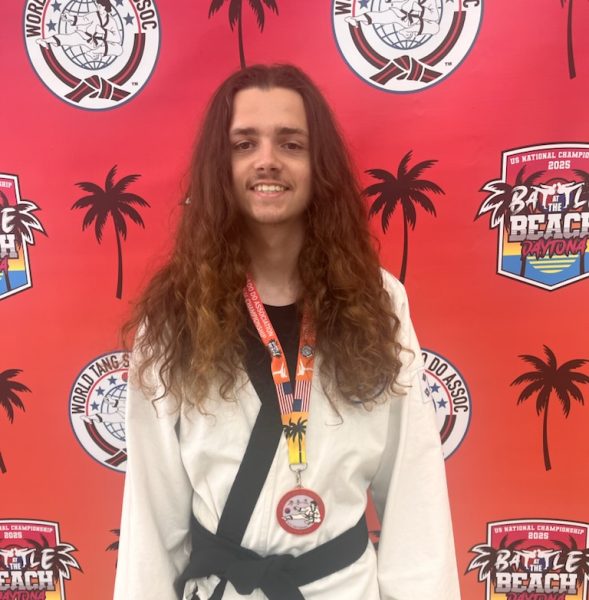Former police officer turned teacher shares her experience
Ms. Torey Dabney-Houseworth works with a student during a simulation in Criminal Justice class.
Teachers have interesting backgrounds. Some are former journalists, some double as coaches, and some come from the police force, like Ms. Torey Dabney-Houseworth.
“I’m a former federal police officer,” Ms. Dabney-Houseworth said. “I’m still working in the field, but I’m no longer a police officer. I’m now an investigative analyst.”
The agencies Dabney-Houseworth worked for fell under the Homeland Security umbrella, meaning that anything under the umbrella – emergency responses to national and manmade disasters, cybersecurity, and a multitude of other things – is what Ms. Dabney-Houseworth specialized in.
“I dealt with a lot of armored truck robberies,” she said. “And things like searching for bombs, looking for bombs, assessing certain situations that might have required suspicious packages, unattended bags, stuff like that.”
Being able to diffuse situations like these require a lot of focus. Even if you’re just starting out, you have to be in the zone.
“My first arrest was a gun arrest with someone who had a concealed weapon in New Orleans,” Ms. Dabney-Houseworth said. “It was actually around Mardi Gras time. There were thousands of people, and I was able to look up at this guy’s waistband, and I saw that he had a weapon on him. He was in a crowd of people, so a lot of people could have gotten hurt. It was illegal because you can’t carry a concealed weapon where I was. So, I took them into custody and possibly prevented a potential shooting or him either harming himself or someone else. That was my very first arrest. I was a rookie, fresh out of the Federal Academy.”
Now, Dabney-Houseworth is focused on other things, such as teaching other students about what it’s like being in the field via simulations in the Criminal Justice class she teaches.
“The point of the simulations is that it gives them the experience to see what it’s like to be in a police officer’s shoes,” Dabney-Houseworth said. “The stress and the position that they are in when they have to use a certain level of force. So when they’re in there doing the simulations, it gives better understanding when they’re out later on.
“Maybe they are at a traffic stop. They’re stopped for speeding or something like that. All that stuff kind of comes back to mind, and kind of helps you put it into perspective, like what the officer might be thinking, so there’s certain things that you should and should not do.”
Each student is given a variety of scenarios, which differ for each of them.
“Some of these students describe it as stressful, while some of them describe it as fun, but you don’t know what to expect. So your mind as a police officer is trained to expect the worst, be prepared for the worst, be prepared for this situation to go south,” she said.
“What if this guy pulls a gun? What if he pulls a knife? Or what if he’s cooperative in the very beginning, and then he starts to get aggressive? So when they’re in the simulator room, they’re thrown into a scenario. And some of them happen really fast. And some of them start to evolve into what can sometimes be a very bad situation or a good one.”
Being a teacher and teaching others about what it’s like to be on the force is something that Dabney-Houseworth loves. And watching other teachers helping their students succeed puts a smile on her face.
“It matters when you have staff members that care. And I know that I care. So when I see my peers – the other teachers that I work with – when I see that they care and their leadership style, it all makes a difference because we’re in this together.”
I am a sophomore at MHS. It is my first year writing for the newspaper! I like to do various things in my free time, such as hanging out with friends or...
My name is Noah Molenda, and I am a junior here at Merrillville High School. This is my 2nd year writing for the newspaper. I’m very excited to see what...

